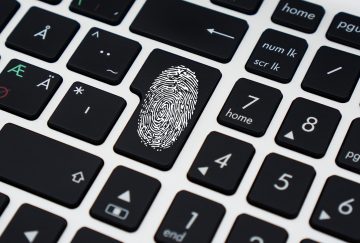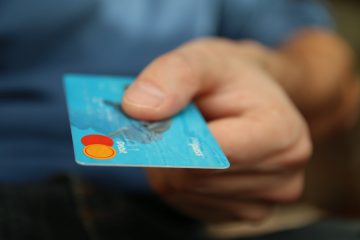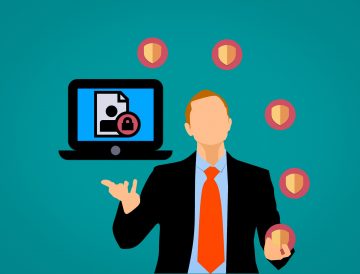Top 6 Signs That Your Online Identity Might Have Been Stolen

If your online identity was stolen, you might not realize it right away. Hackers might take their sweet time to make a mess. Furthermore, in some cases, hackers are so stealthy that it is hard to understand what has happened at all. That being said, there are always signs that can help unravel the chaos, even if these signs are not always obvious or clear. Since there were 16.7 million victims of identity theft in 2017, according to Javelin, we need to discuss the main signs that should help you unveil identity theft. We also talk about what you can do if, in fact, your identity was stolen online.
Table of Contents
What is online identity?
Your online identity is comprised of everything that you put online. Your social media profiles, your email accounts, your virtual banking, your photos, your videos, and so on. Everything that identifies you online can be viewed as an online identity. Most people assume that hackers are only interested in stealing those identities that have a wider reach; for example, influencers who have more followers or an administrator account that has access to many other accounts. While it is true that hackers might be more interested in “bigger” targets, make no mistake in thinking that you are not a target just because you are a small fish. Instagram or Facebook users are not the only ones targeted. Hackers are willing to steal online identities of anyone and everyone. To make matters worse, once your identity is stolen, it can be sold to anyone.
Signs that you have experienced identity theft
Some signs of identity theft are more obvious than others, and it also depends on the victim's vigilance and experience whether or not they recognize the attack right away. Here are six important signs that you should look out for if you are worried that your identity was stolen online too.
- You were locked out of your account. If you try to log into your Facebook, Instagram, Reddit, email, or any other account, and you are denied permission, you might think that you have made a mistake when typing the username or password. However, it is also possible that cyber attackers have figured out your login credentials and changed them without your permission. If that is the case, you should try to reset your password as soon as possible. If you cannot do that on your own, contact the service provider right away. They might be the only ones capable of assisting you.
- Your online identity has been cloned. If you find a clone account on a social media platform (e.g., Facebook), you are a victim of classic identity theft. This is the reason why you should be very careful about the content you make public. If you share photos of yourself freely, do not be surprised if someone decides to take on your identity. Without a doubt, you do not want your own identity associated with people who are okay with deception, and so if you find clone accounts, make sure you report them right away. Also, go through your accounts and hide personal information and photos from public access.
- You found suspicious transactions in your bank statement. It is a good habit to go through your bank statements frequently. It does not take any time, and it might help you stop illegal activity. If you ever discover transactions you cannot confirm, you must contact your bank or credit company to inform them about the incident. If someone has managed to purchase goods or transfer money from your account without your permission, the chances are that your identity was stolen online, and that could lead to much bigger problems in the future.
- Your healthcare bill does not make sense. As you might know, healthcare data breaches have become quite common in the past year or so. Unfortunately, if a healthcare institution does not keep your medical records safe, someone might perform virtual identity theft to exploit your insurance. If you discover bills for services or medicine you have not received and used, you need to get to the bottom of the issue right away. Note that your insurance could suffer because someone might have purchased drugs for uninsurable conditions. It is only in your interest to stop identity thieves!
- You have received strange notifications. If you receive a text message or an email – depending on your settings – suggesting that someone has accessed your account from an unrecognized device or from a foreign location, you need to investigate the incident immediately. If you are 100% sure that it was not you who accessed an account from a remote location, you must change passwords immediately to ensure that no one can impersonate you online.
- You found unauthorized posts, messages, or emails. Have you discovered that someone has posted or sent a message on your behalf? If that has happened, identity theft has occurred. You need to secure your account as soon as possible, and you also need to delete or retract the posted content. Most likely, attackers have posted or sent links or files, and you do not want to open them under any circumstances. You also want to warn your friends, colleagues, and everyone else who might have received strange messages, so that they would not become victims of identity theft too.
What can you do?
Identity theft is a serious thing, and you should not ignore the signs that your online identity might have been stolen too. The first thing you should do – in most cases – changes your password to the account that might have been breached. If schemers have your password, they have full access to your account, and you want to restrict it. When you change your password, do not forget that it must be unique and complicated; otherwise, hackers might breach it again. We strongly suggest employing a trusted password manager to help you out.
You also want to be vigilant because the sooner you discover identity theft, the better your chances of defending against cyber criminals are. Of course, you also want to take preventative measures. For one, always set up two-factor authentication to ensure that no one can penetrate your accounts without your permission. Also, when available, set the settings in a way so that you are warned when someone accesses your accounts from unfamiliar devices and locations.
You should be careful about your content sharing too. If you do not want anyone downloading your photos or gaining access to contact information, date of birth, full name, and similar details, make sure it is concealed; at least from the public eye. If you face identity theft linked to your healthcare or banking accounts, do not waste any time to contact service providers to warn them about illegal activities.








